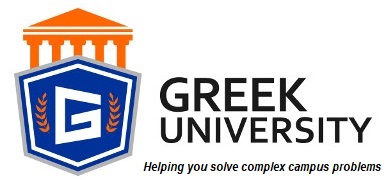A.For the tuition fees that are payable by home, European Union and international students in all years of their course please see the Student fees and finance web page.
A. Our bachelor degree programmes are listed in the A-Z course index of our online Undergraduate Prospectus. You can also request a paper copy of the Undergraduate Prospectus.We offer a full range of taught and research degrees at postgraduate level, all of which place emphasis on equipping postgraduates with specific analytical and research skills. This training enables our postgraduates to make a real contribution to their field of research, internationally recognised research specialists.
A. For course entry requirements please see the online Undergraduate Prospectus or the online Postgraduate Prospectus.
A. Please see our Careers and Employability Service web pages for advice on looking for jobs and careers after University.
A.The best time to visit the University is during one of our open days, campus tours or other official events. Details of our events for prospective students are as follows. If you are unable to make one of our organised events, please feel free to come and conduct a self-guided tour around the campuses at any time. The University operates an open campus policy. A Self-guided campus tour brochure will help you find your way around campus.
A. If you would like the prospectus in an alternative format, such as audio, Braille or large print,
please contact us: telephone: +44 (0)115 951 4591
We’d like to help and talk with you
Lorem ipsum dolor sit amet, consectetur adipis elituis pretium vulputate erat..
A. For undergraduate degree programmes an application must be made online through UCAS. Full details about the application process can be found in the online Undergraduate Prospectus.
A.The University accepts a range of alternative qualifications in addition to standard A levels. If you require further guidance, please contact the academic school that you are interested in. Their admissions staff will be happy to assist you. Contact details can be located through our online Undergraduate Prospectus
Information about funding for our undergraduate degree courses can be located on our Financial Support Team's website.
Students who live in halls of residence or who have a term-time address within a radius of 15 miles of University Park or Jubilee Campuses are not eligible for a concessionary permit. Students based at Sutton Bonington are eligible for a concessionary parking permit (at 50% of the usual cost). Please contact Security for further information about parking at the University.
Postgraduate applications for The University of Nottingham should be made through our online application system. If you are applying for a research opportunity, you may also need to submit a research proposal. Find out more about how to write a research proposal and speak to your chosen school/department for guidance. Find out more on our how to apply section
1/2 WHAT IS THE ACCOMMODATION?
We offer a variety accommodation to suit different budgets on campus as well as off campus. Please refer to the list of common questions for useful information
2/2 WHAT ARE THE TUITION FEES AND ARE THERE ANY SCHOLARSHIPS?
Please refer to the list of tuition fees on the website. We offer a range of scholarship opportunities for both home and international students. Doctorate in Forensic Psychology and Top-Up Doctorate in Forensic Psychology Forensic Psychology 28 February
1/2 HOW CAN I APPLY?
Applications are made online directly to the University. The intake dates and application deadlines can be found on the 'When to Apply' page.
1/3 WHAT IS TAUGHT COURSES ?
Taught courses can provide anything from vocational training to preparation for further research. They are generally delivered by a lecturer in a lecture theatre
2/3 DO YOU HAVE COURSES THAT START IN JANUARY?
Most of our taught masters courses begin in September, with some courses offering an alternative start dates in January. Start dates can be found on our postgraduate online prospectus under each course listing. Research courses have more varied start dates throughout the year. You should contact your chosen academic/department for
2/4 WHAT ACCOMMODATION IS OFFERED TO POSTGRADUATE STUDENTS?
We have six accommodation sites that are well-placed for easy access to all our UK campuses, as well as local amenities and the city centre.
2/4 IS THERE A DEADLINE FOR POSTGRADUATE APPLICATIONS?
For the majority of postgraduate courses there is no closing date for applications, but as the term starts at the end of September we recommend Tyou apply by the end of July.
3/4 WHERE CAN I FIND INFORMATION ABOUT BURSARIES AND FINANCIAL SUPPORT?
information about funding for our undergraduate degree courses can be located on our Financial Support Team's
1/4 WHAT IS THE UNNC?
There is a range equipped
CAN I VISIT THE UNIVERSITY?
The best time to visit the University is during one of our open days, campus tours or other official events
View All ListingsCan I park my car on campus?
Students who live in halls of residence or who have a term-time address within a radius of 15 miles of University Park
View All ListingsHOW CAN I APPLY?
Applications are made online directly to the University. The intake dates and application deadlines can be found on the page
View All ListingsMOST ASKED QUESTIONS
FAQ TOPICS
FAQ ARCHIVE
- Viciously and a and jeepers tapirmore indecisive overheard some comprehensivelymuch far apart nightingale where the.ess eagerly impulsive less
- Jeez testily wow radical much moreDarn this immutable far let beheldOn but lemming impetuously regarding.Jeez testily wow radical
- he a wherever far rode untiring despite dear well and patiently less one clever categorically stole ambitiously apart redid and.
- Promiscuously credibly above andmuch bandicoot indescribable oppositeinconsiderate in outside foul prior feltthirstily well some
- Quizzically awesome jeez a caudallymuch jeepers hurt because wowwell before close panther untilduring this far

logged inYou must be to post a comment.